An International Conference Entitled "Effective Self-Governance as a Powerful Consolidating Factor for Private Enforcement Officers" was Held with the Support of EU Project Pravo-Justice
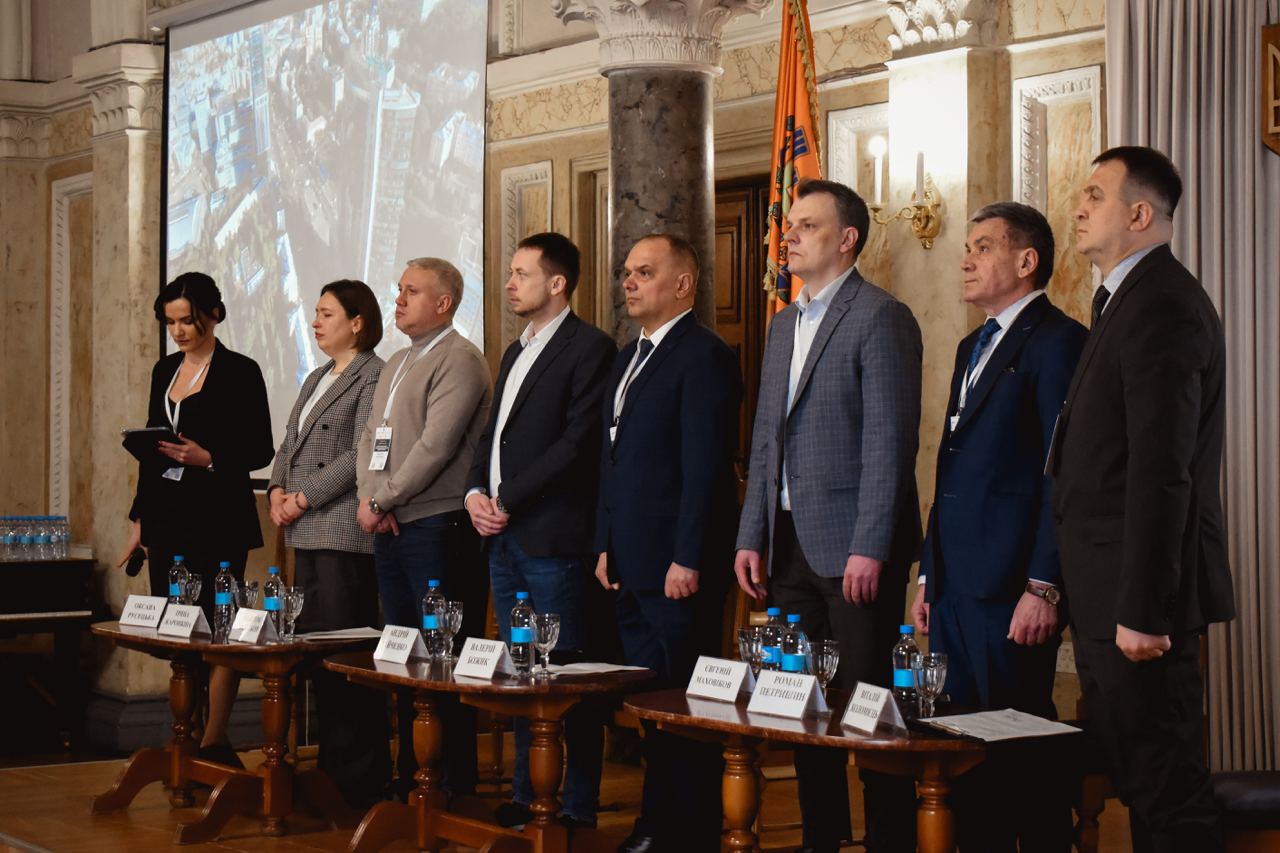
On March 1, an international conference entitled “Effective Self-Governance as a Powerful Consolidating Factor for Private Enforcement Officers” was held in Chernivtsi with the support of EU Project Pravo-Justice, the Ministry of Justice of Ukraine and Yurii Fedkovych Chernivtsi National University. The conference was organised by the Association of Private Enforcement Officers of Ukraine. Private enforcement officers, representatives of the Ministry of Justice, academia, bankruptcy trustees, lawyers and EU Project Pravo-Justice experts participated in the event.
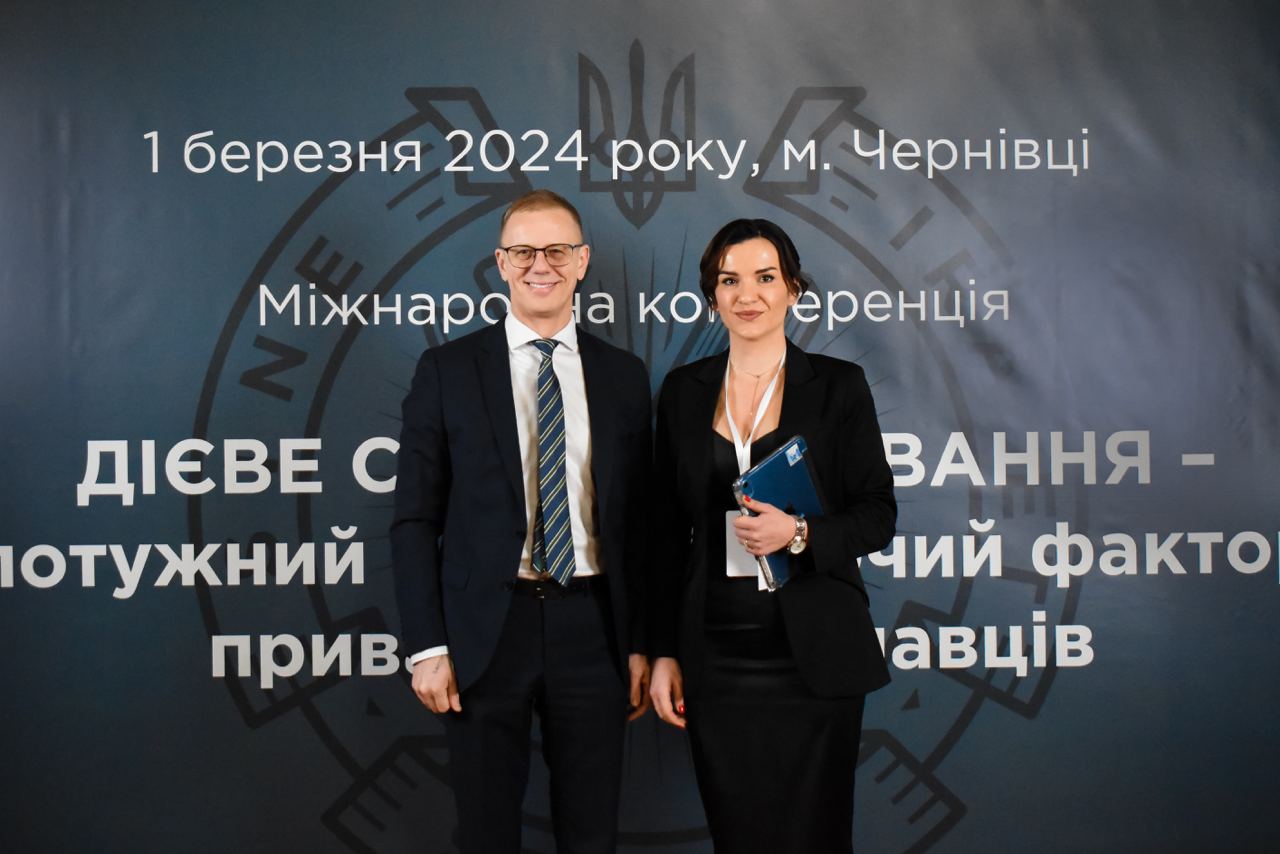
In her opening remarks, Oksana Rusetska, President of the APEO, thanked EU Project Pravo-Justice for its constant involvement in reforming the enforcement system in Ukraine and developing the profession of private enforcement officers.
“I am convinced that the conference will be full of productive discussions and we will have a useful exchange of experience,” said Oksana Rusetska.
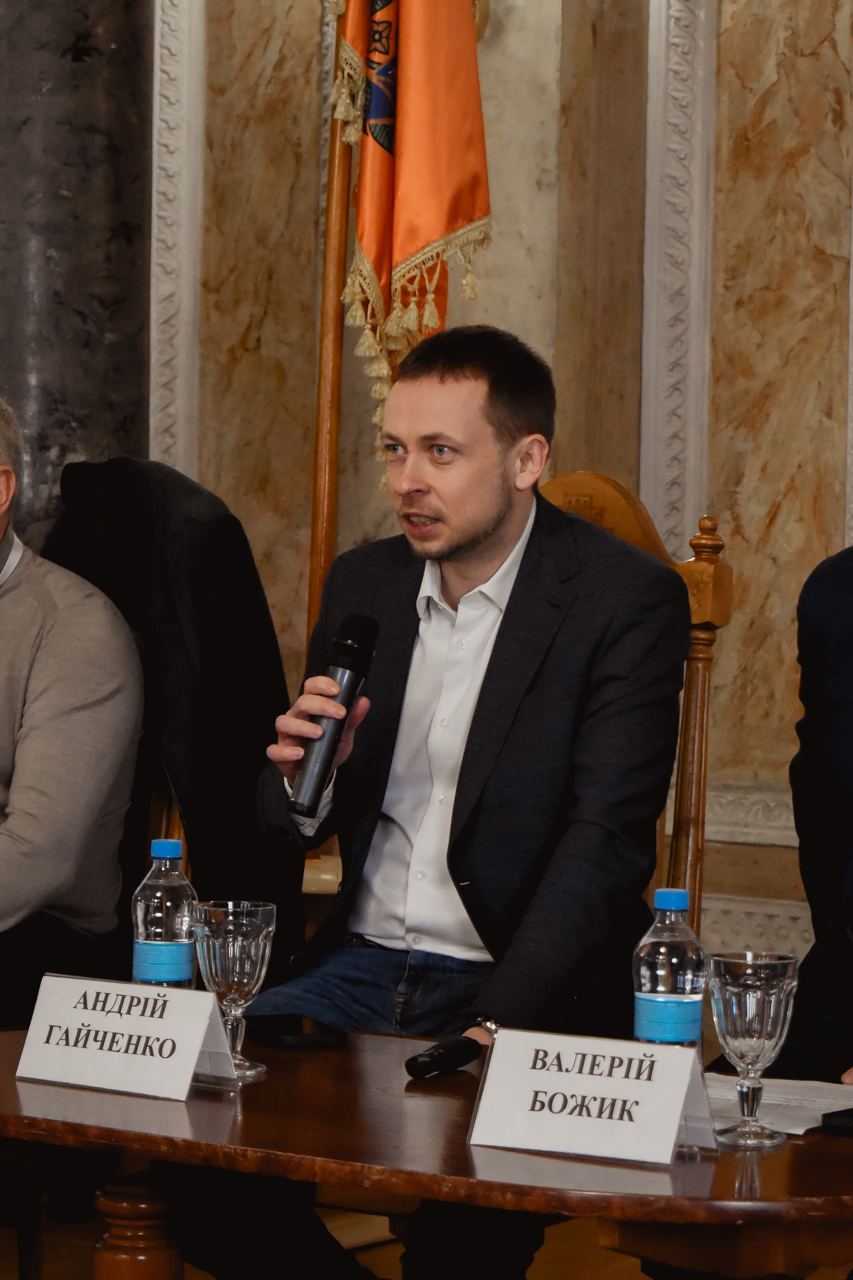
In his welcoming remarks, Andrii Haichenko, Deputy Minister of Justice of Ukraine, stressed the importance of the profession of private enforcement officers to ensure the rule of law. He also praised their role in strengthening the country’s defence capability because they are self-employed and pay significant taxes to the state budget.
“I hope that the long-awaited draft law No. 5660, as well as a number of other important legislative solutions for the enforcement system, will eventually be adopted, and the profession of private enforcement officers will further develop,” said Andrii Haichenko.
Valerii Bozhyk, Deputy Chair of the Parliamentary Committee on Legal Policy, assured the conference participants that MPs support further reform of the enforcement sector, which, in particular, includes strengthening APEO’s institutional capacity.
“Private enforcement officers have proven their effectiveness. Committee members are trying to support this institution. We have always managed to find compromises and favourable solutions both for the profession of private enforcement officers and for all citizens,” said Valerii Bozhyk.
The MP mentioned that the full-scale war is one of the main reasons draft law No. 5660 has not yet been adopted in the second reading.
In his welcoming remarks, Maksym Kyselov, Director of the Department of the State Enforcement Service of the Ministry of Justice of Ukraine, also acknowledged the development of the private enforcement community.
“For over two years of the full-scale war, the number of disciplinary sanctions against private enforcement officers has significantly decreased. The Department takes action only in up to 1% of the complaints received. I believe this is a good indicator that the self-government of the community is developing,” said Maksym Kyselov.
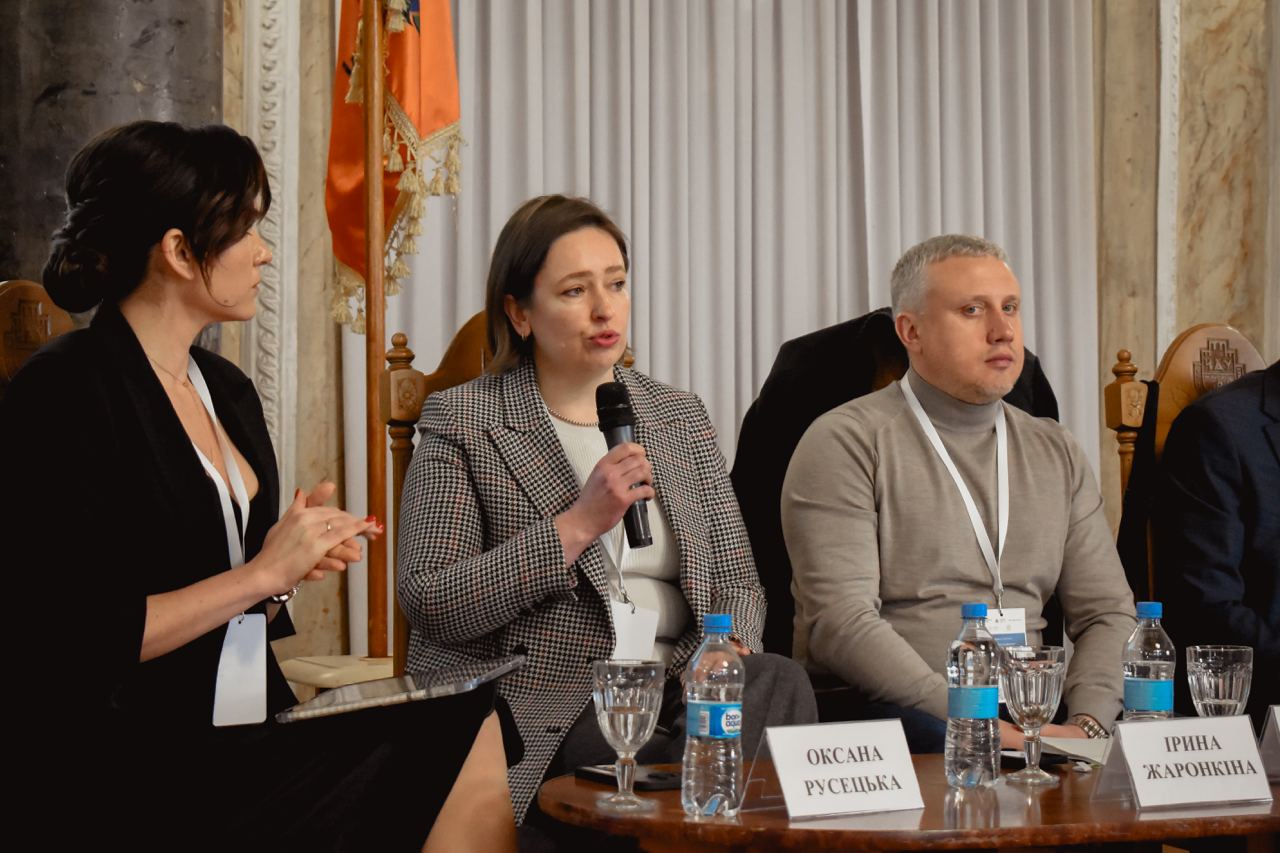
Iryna Zharonkina, Enforcement and Protection of Property Rights Component Lead of EU Project Pravo-Justice, said that strengthening enforcement is also crucial in the context of Ukraine’s aspirations towards European integration. She noted that in more than seven years since the profession of private enforcement officers was established, this community has shown tremendous institutional growth.
“The sociological survey that the Project conducted in the field of enforcement of court decisions showed that the professional community assesses the activities of the UBA favourably. This also proves that the Association performs its functions as a self-governing professional organisation,” said Iryna Zharonkina.
There were three panels at the conference. The first panel was dedicated to reforming the self-governance of private enforcement officers in light of the APEO’s experience and international best practices. In particular, Oleksandr Oliynyk, Director of the Directorate of Justice and Criminal Justice of the Ministry of Justice, presented an analysis of the legislative framework for self-governance of private enforcement officers. According to him, APEO representatives need to audit the functions of all bodies of the Association to check if they overlap, whether they conform to the law, and whether they are effective, and consider how these bodies interact with the entire community.
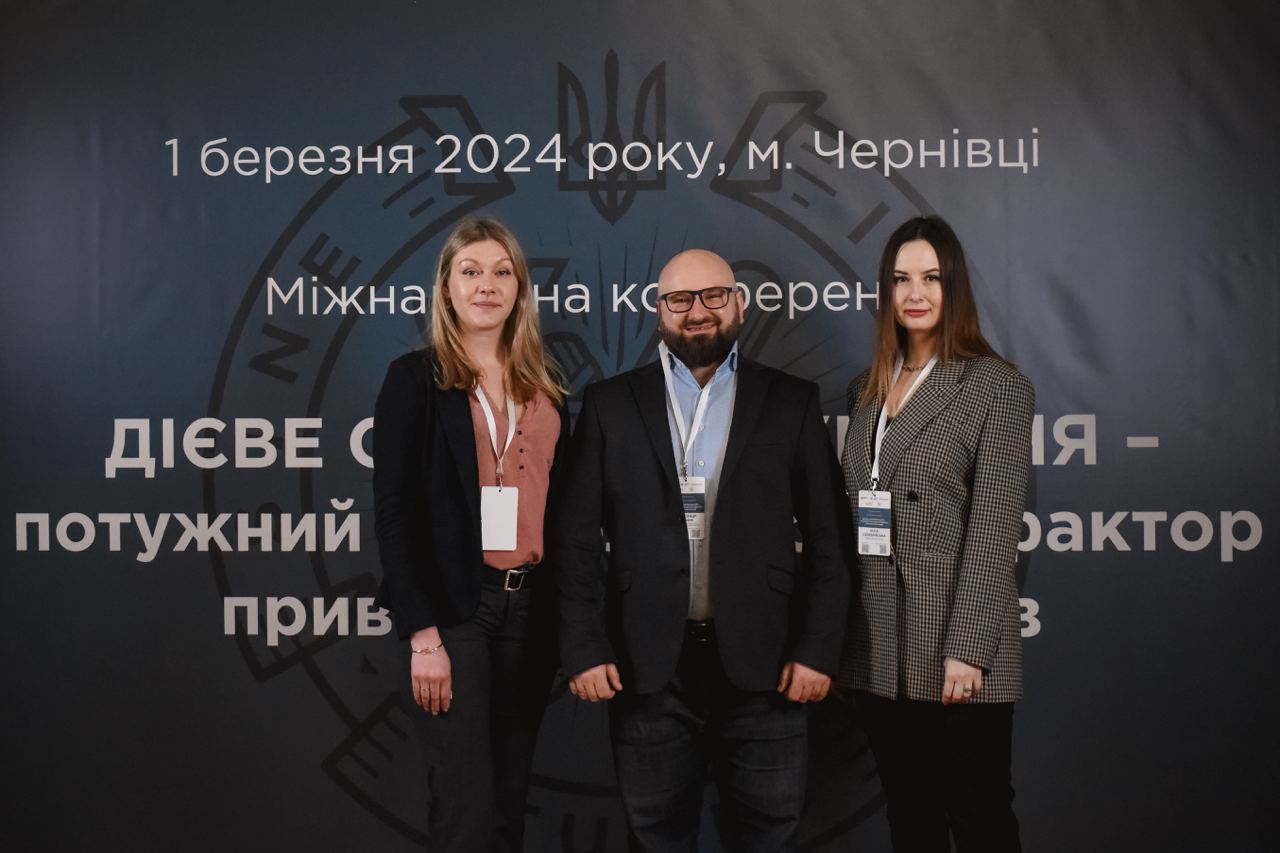
The second panel was dedicated to discussing proposals to the Law “On Authorities and Persons Enforcing Court Decisions and Decisions of Other Bodies”, the Charter and other statutory documents of the APEO, and the Code of Professional Ethics of a Private Enforcement Officer. During the third panel of the conference, the conference attendees focused on the achievements and challenges in arranging the work of the Association’s bodies.
Video recording of the conference.